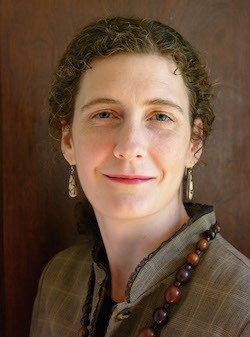Meet the Chemical Entanglements Speakers: Liza Grandia
 CSW’s Chemical Entanglements Symposium takes place on May 4 & 5. Registration is free and open to all!
CSW’s Chemical Entanglements Symposium takes place on May 4 & 5. Registration is free and open to all!
Indigenous people throughout the Americas are no strangers to the politics and deadly risks of environmental hazards. Liza Grandia, anthropologist and Associate Professor in the Department of Native American Studies, University of California-Davis, centers indigenous experience and activism in her study of environmental health and agrarian change, corporate trade and globalization, foreign aid and empire, political ecology and environmental justice and the politics of illness. While her ethnographic research takes place mainly in Belize and Guatemala, her work also emphasizes the ways that environmental hazards impact indigenous people and marginalized people transnationally. The recipient of a 2017-2018 Mellon New Directions Fellowship, Dr. Grandia’s project, “Toxic Trespass,” explores how to build “new transnational alliances based on mutual vulnerabilities to environmental hazards.” Centering indigenous leadership and insight into toxic exposures and environmental health sciences–insights gained through protracted fights with companies that manufacture pesticides, and through fights with the mining and extractive industries and their environmental impact–Dr. Grandia conjectures that awareness by privileged people around the “invisible trespass” of synthetic chemicals from the built environment and consumer products will be the catalyst for addressing the “greater environmental injustices faced by indigenous and other marginalized peoples.” In her presentation at Chemical Entanglements, Dr. Grandia will focus on wall-to-wall carpet, the EPA, and the persistent tensions within the environmental movement about “hierarchical trade-offs between outdoor and indoor pollution.” By connecting politics to environmental health, Dr. Grandia is able to connect the hyper-local and everyday life to the broader, structural, policies and debates.
Read Dr. Grandia’s account of the connections she sees between women’s studies, indigenous studies, and environmental justice: [broken link]
For Dr. Grandia’s historical map of the Dakota Access Pipeline in context, see: http://nas.ucdavis.edu/sites/nas.ucdavis.edu/files/attachments/standingrockmap_forprint_v4_120516.pdf

